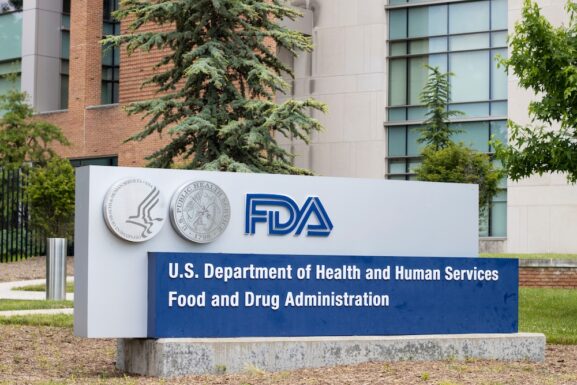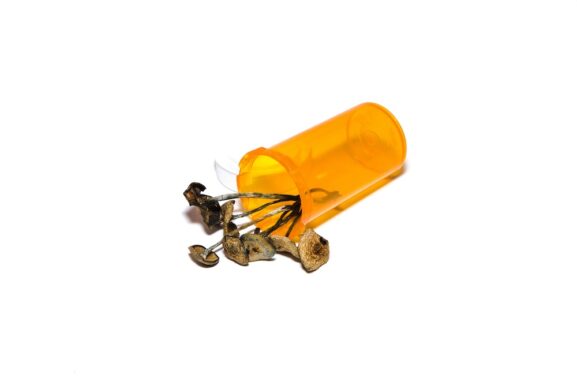Why Psychedelics Treatment Is More Prominent In The Age Of COVID-19
Psychedelics have gained popularity as treatment for a variety of mental health conditions. From the use of ketamine for depression, to the many benefits of MDMA therapy, these alternative medicines are leading a new wave of healing.
With the COVID-19 pandemic irrevocably changing our lives, more people are turning to psychedelic drugs for relief from the uncertainty.
A Mental Health Crisis
Even before the pandemic struck, we were in the midst of a global mental health crisis. Rates of depression, anxiety, and other mental health conditions were at record highs. Over 50 percent of adults in the United States can expect a mental health diagnosis at some point in their lives, per the CDC.
Some of this may be attributed to the unprecedented stresses of modern living — high pressure careers, poverty, overreliance on technology. And some is undoubtedly due to the fact that mental health disorders are emerging from the shadows. People are more aware of conditions like depression and are now more inclined to seek treatment. There is less stigma attached, and better (although imperfect) solutions now available.
Among the most promising therapies to emerge in recent decades are those involving the use of psychedelics.
Substances including psilocybin mushrooms, LSD, ketamine, and MDMA have shown to facilitate significant improvements in many patients. With mental health conditions on the rise as a result of COVID, discussion of psychedelic treatment has been further amplified.
RELATED: 5 Things Prohibitionists Got Wrong…And One Thing They Got Right
COVID-19 and Mental Health
CDC data from June 2020 shows that rates of anxiety have tripled, and rates of depression quadrupled from the same time in 2019. Nearly 11 percent of respondents to the study had considered suicide. Mercifully, suicide rates have not reached the levels projected by some scientists and have even dropped in some regions. However, even the level of suicidal ideation noted by the CDC is a sobering reminder of COVID-19’s secondary ramifications.
Health professionals on the frontlines are particularly susceptible to the psychological effects of the pandemic. Most are working grueling hours in sub-optimal conditions. Many are watching dozens of their patients and even colleagues die from the virus. A meta-analysis found that 23.2 percent of health professionals are suffering from anxiety, and 22.8 percent are depressed.
In light of this, some mental health professionals and psychedelics advocates have proposed fast-tracking a number of psychedelic treatments already in development. The FDA has already sped up the approval process for the COVID vaccine, they reason, so why not do the same for treatments that have shown remarkable promise in treating anxiety, depression, post-traumatic stress disorder (PTSD), addiction, and other mental health conditions that have resulted from or been exacerbated by the pandemic?
RELATED: What Are Psychedelics? We Explain The Differences From Other Drugs
Psychedelics in Medicine
The mental health crisis precipitated by the pandemic has underscored the urgency of mainstreaming psychedelic treatment. Fortunately, we’re not starting from square one. Plenty of trials are already underway — and the results are promising.
These findings have diminished the stigma of their association with ‘60’s counterculture. According to the Aspen Brain Institute, many American adults support legalizing psychedelics for medical use. This is a relatively recent development, though. Until the last decade or so, psychedelic research was only whispered about in academic circles. This was despite the occasional emergence of encouraging results. Researchers feared that openly discussing their interest might damage their reputations. Now, psychedelics are on the cusp of wider acceptance in mainstream medicine.
Johns Hopkins University added to the institutional legitimacy of psychedelics treatment by launching its Center for Psychedelic and Consciousness Research in 2019. Imperial College London inaugurated the Center for Psychedelic Research that same year. And a number of prominent clinical trials are nearing completion, with other, smaller trials showing promising outcomes.
Perhaps most notably, COMPASS Pathways is nearing the end of its 2b trials on the use of a synthetic analogue to psilocybin in addressing treatment-resistant depression. A final trial will pave the way for FDA approval.
What Psychedelics Can Do for Us
The FDA has yet to accelerate approval of psychedelic treatments. However, it appears that some may be on the market in the next few years. That may be too late to address the acute symptoms some are experiencing during the COVID-19 pandemic, but just in time to treat the lingering effects.
We can’t fully anticipate what the long-term mental health effects of the pandemic will be. However, it is likely that they will extend beyond the years of the crisis itself. The SARS outbreak of 2003 caused episodes of depression that lingered even three years later per one study. There are particular concerns that frontline workers in COVID wards may experience PTSD after seeing illness and death at close quarters on such a large scale.
Though the mechanisms by which psychedelics can assist in treating conditions like depression and anxiety are not completely understood, we do have a few notions about their impacts on the brain. They appear to disrupt our default mode networks — networks of neurons that, among other things, contribute to our sense of self and help us process information about both the past and future.
A Breakthrough In Depression Treatment
Conditions like depression may be caused by the malfunctioning of this default mode network. Certain regions become hyperactive and others less active.
For example, in people who have depression, this results in repetitive negative thoughts that are difficult or impossible to shake. The disruption of the default mode network caused by psychedelics can allow users time for objective self-reflection that would otherwise be impossible due to the hyperactive regions. And because this disruption can actually result in the formation of new neuronal connections, allowing for greater resilience in the processing of negative emotions, the effects can be lasting after even a few doses. Psychedelic experiences, in effect, help rewire our brains.
Conventional psychiatric medicines like selective serotonin reuptake inhibitors (SSRIs) and benzodiazepines, on the other hand, require regular dosing to remain effective and can result in negative side effects. Side effects of medical psychedelics typically fade quickly.
An Expedited Mental Health Option?
Whether the current mental health crisis will expedite the psychedelic revolution in medicine remains to be seen. The reasoning and the data that backs it up are certainly compelling.
In the meantime, some have suggested that recreational use of psychedelics is already up as a result of the pandemic, with people increasingly desperate for solutions to their boredom and despondency. Although self-medicating with psychedelics is inadvisable, perhaps this trend will be further motivation to ensure that they are available in a controlled, medical setting.
In Conclusion
What is so exciting about the current explosion in psychedelic therapy is the science. Vetted institutions like Johns Hopkins and London’s Imperial College have been doing clinical trials for years and what we’ve seen is groundbreaking. These new therapies will change mental health as we know it. We just need to look at the science and use it to combat stigma.
Psychedelic Therapy Clinic Spotlight:
Chronic Pain Consultants – Marlton, New Jersey
North Jersey Ketamine – Boonton, New Jersey
Restorative Infusions – Paramus, New Jersey
Tranquility Ketamine Clinic – Albuquerque, New Mexico
Injection and Infusion Clinic – Albuquerque, New Mexico
New York Ketamine Infusions – New York, New York
Cedar by Novamind – Springville, Utah
PsychMed Ketamine – New York, New York
MindBody Therapeutics – New York, New York
Redemption Psychiatry – Chandler, Arizona



